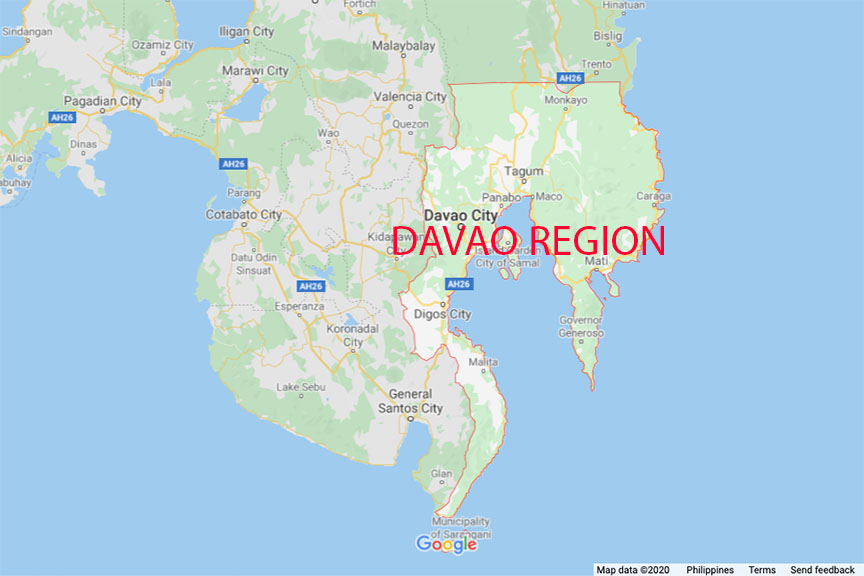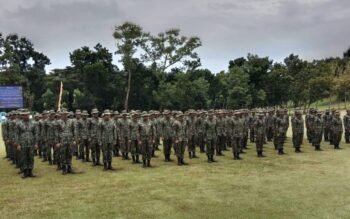DAVAO CITY (MindaNews / 27 August) – Approved investment pledges registered in Davao Region increased to P2.4 billion in the second quarter this year despite the crippling impact of the coronavirus disease (COVID-19) on the economy, National Economic Development Authority-Davao director Maria Lourdes Lim said.
Lim said this figure is higher by 79.29-percent compared to the P497 million reported for the same period last year.
 Davao Region. Map courtesy of Google
Davao Region. Map courtesy of Google
In her report during the virtual launch of the Davao Regional Development Plan 2017-2022, Lim said these big-ticket investment projects came mostly from new hotel operator Acacia Hotel Davao and another big player in the export Cavendish banana production.
She said the region, one of the best performing areas in the country, would still manage to sustain positive economic growth owing to the discipline and resiliency of the people to adapt to the “new normal”.
The biggest investments in the region in 2019 included a new export producer of coconut products in Sitio Pantukan, Barangay JP Laurel, Panabo City, Davao del Norte, amounting to P994 million; new bulk water supply project in Barangay Magdum, Tagum City, P586 million; and a new developer of an economic and low-cost housing project in Barangay Communal, Buhangin, Davao City, P416 million.
Department of Trade and Industry-Davao director Belenda Ambi added that these new investments, despite coming mostly from domestic investors, would help sustain economic growth in the region.
The Davao Region comprises Davao City and the provinces of Davao del Sur, Davao del Norte, Davao Occidental, Davao Oriental and Davao de Oro.
“Despite the COVID pandemic, I think we should still be positive that we can address some of the challenges that we are facing because we are making use of new technologies and I think all government agencies, the local government units, an even the private sector are supporting the growth of Davao Region,” she said.
She said she is optimistic the region would recover from the impact of the pandemic.
Citing the Davao Regional Recovery and Resiliency Program, Lim added that the region adopted emergency, recovery and resiliency stages to cope with the impact of the pandemic.
Under the emergency stage initiatives, she said local governments ensured unhampered movement of agriculture and other essential goods and services, as well as focusing on the immediate provision of social services, establishment of unified regional guidelines on quarantine measures, and strict implementation of health protocols across the region.
From June to December 2020, Lim said the focus of the region was on strengthening health systems and healthcare facilities and improving the status and supply of human resource for the health sector, including “hiring of contact tracers as well as adoption of blended learning by shifting to digital and alternative learning modes as we opened the school year 2020-2021” on October 25.
“For 2021 onwards, this will now comprise our resiliency stage, we now focus on the ‘new normal’. Hopefully with the availability of a cure or a vaccine for COVID-19, we would have then normalized our business sectors and turning this crisis into opportunities,” she added. (Antonio L. Colina IV/MindaNews)
